Back to school is coming, and in that spirit, we at the University Innovation Alliance (UIA) have collected some of the best quotes from our interviews with higher education leaders from our Innovating Together Podcast. As with the leadership in so many other sectors during the past 18 months, college presidents and chancellors have needed to do a lot of quick thinking and reassessment of long-term goals. We've noticed a side effect to all this change: more turnover in leadership positions. So for those of you who may be incoming presidents and chancellors, and for those of you who may be working with individuals new to their leadership role, we'd like to share some of the wisdom that our guests have offered during recent podcasts.
Adopt a Leadership Mindset
• "You have no idea what you’re getting into – none. Recognize that." (Gabrielle Starr, President, Pomona College)
• "Focus on the substance. People who really want to be in leadership positions should be people who are excited about learning." (Freeman Hrabowski, III, President, University of Maryland, Baltimore County)
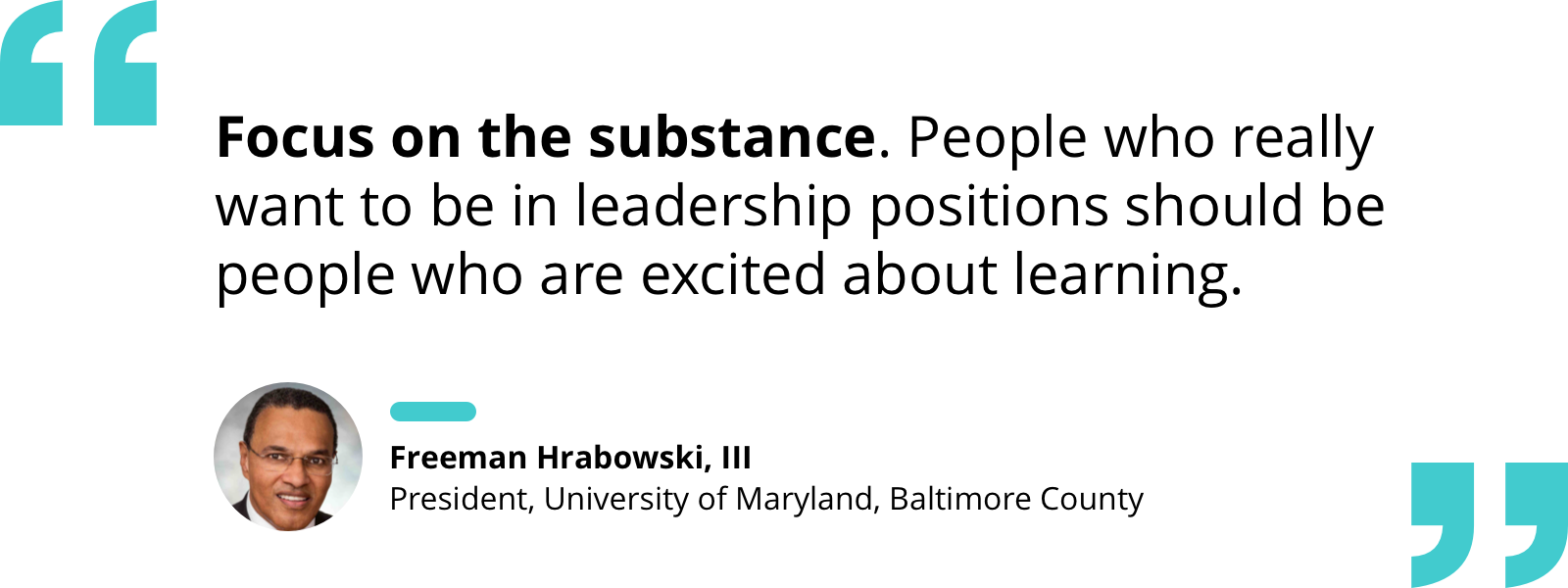
• "You have to have the courage of your own convictions. You are the chief executive. You have to lead." (Mark Becker, Former President, Georgia State University)
Know the Institution You'll Be Leading
• "Become a student of the institution. Spend time really learning about the history, the traditions, and the people there. It starts with coming in and saying, 'Let me be a part of the community and get engaged.'" (Walter M. Kimbrough, President, Dillard University)
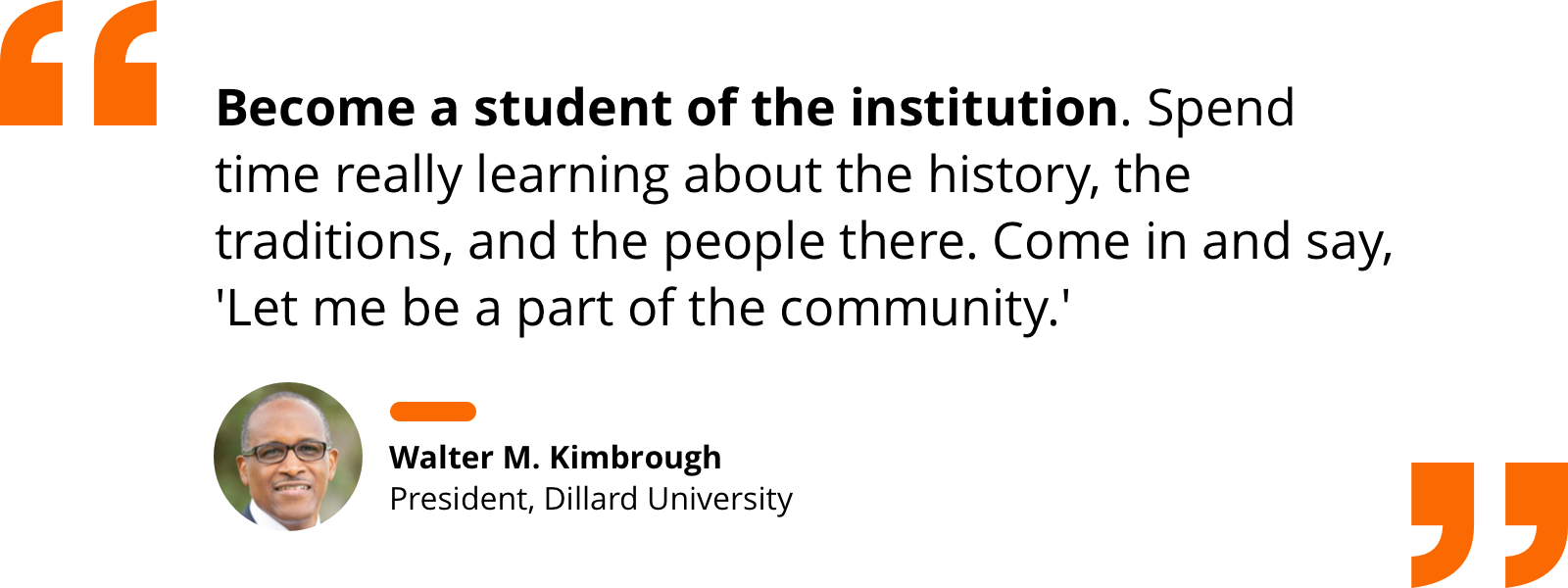
• "If you want to be a successful president, be prepared to understand the culture of the academy and help your institution continue to evolve and adapt." (Mark Becker, Georgia State)
Set Your Goals as a Leader
• "Set goals earlier in the process, and maybe change some of your attitudes about what constitutes success." (Samuel Stanley, President, Michigan State University)
• "As important as rhetoric and discussion are, it’s about the actual performance of the institution against the societal goals and the broader aspirational goals outlined in the U.S. Constitution. To start measuring yourself against those objectives, one has to be accountable for objectives." (Michael Crow, President, Arizona State University)
• "Make the organization better than when you inherited it." (Harold L. Martin, Sr., Chancellor, North Carolina A&T State University)
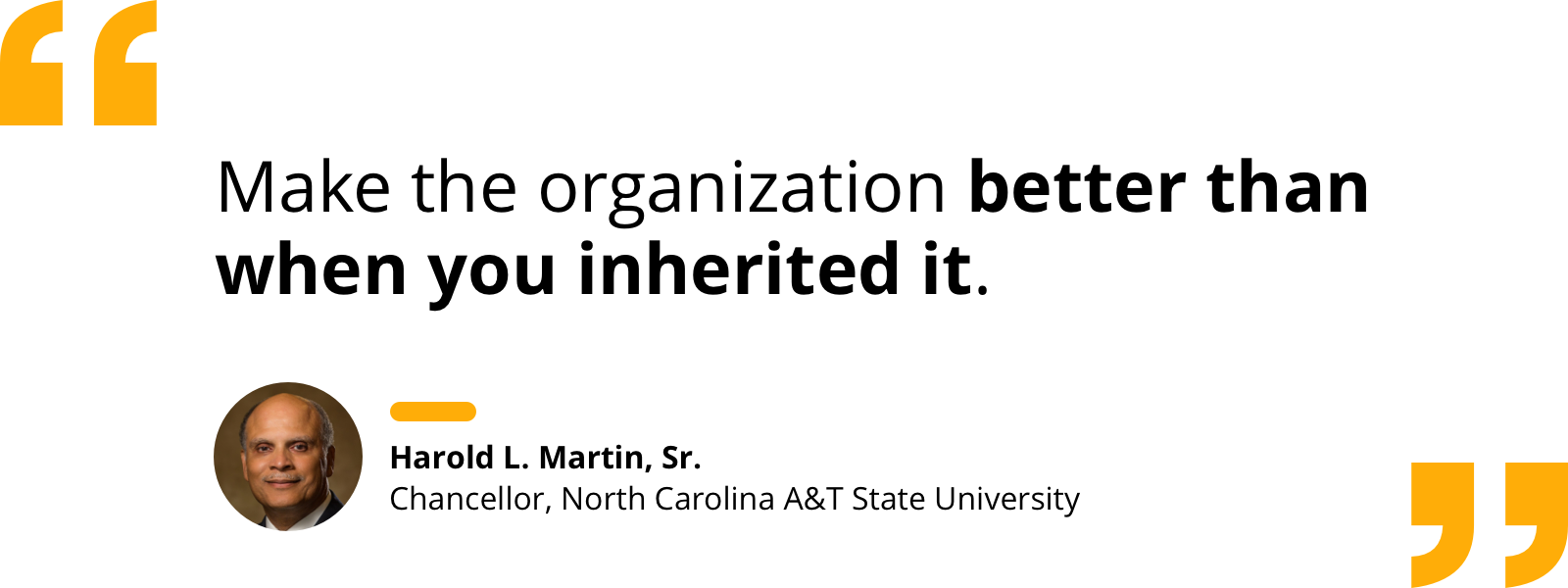
Design and Implement a Leadership Strategy
• "You’re making decisions the best you can at the time that you do them, and the outcome is not always up to you. Resign yourself to that and you’ll be happier." (Gabrielle Starr, Pomona College)
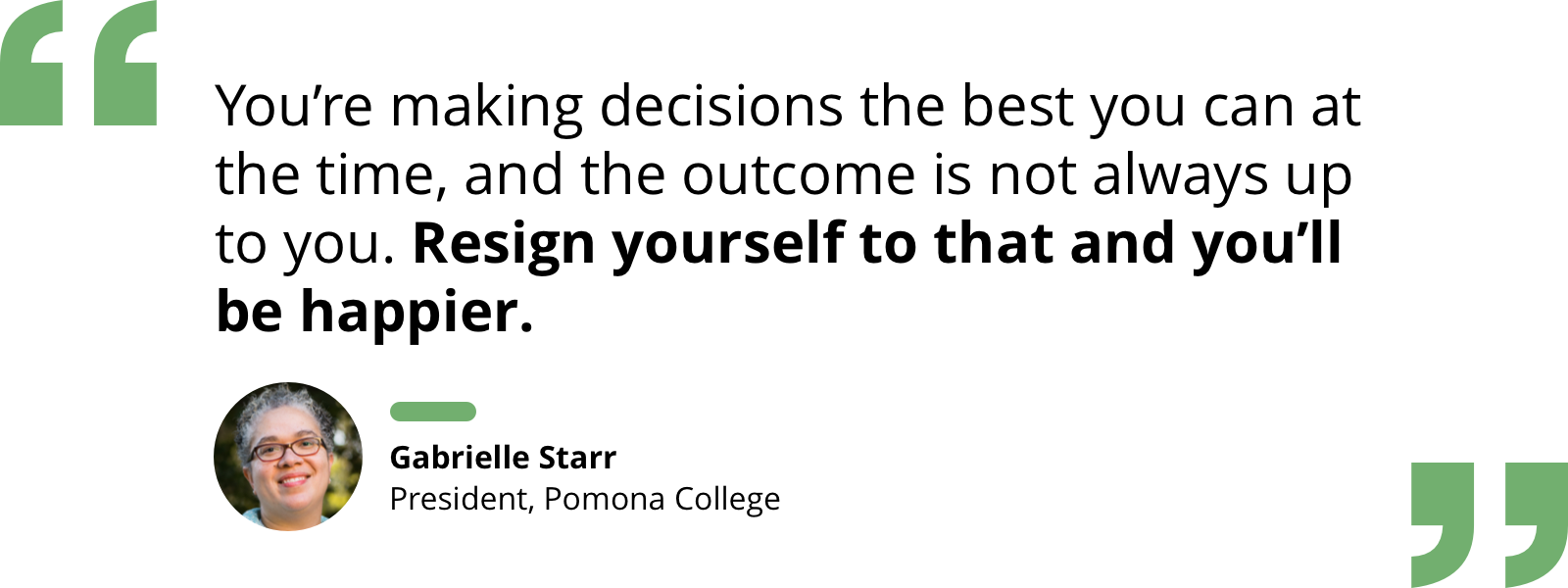
• "Don't be so impatient. Don’t look for quick titles and shallow experiences. Get involved with the critical hard work along the way, and demonstrate your understanding of the organization that you have responsibility for. And then use those experiences to seek the next opportunity for advancement of your career." (Harold L. Martin, Sr., North Carolina A&T)
Recognize Your Leadership Team
• "Have that balance of engaging in shared governance and being a colleague at the same time." (Mark Becker, Georgia State)
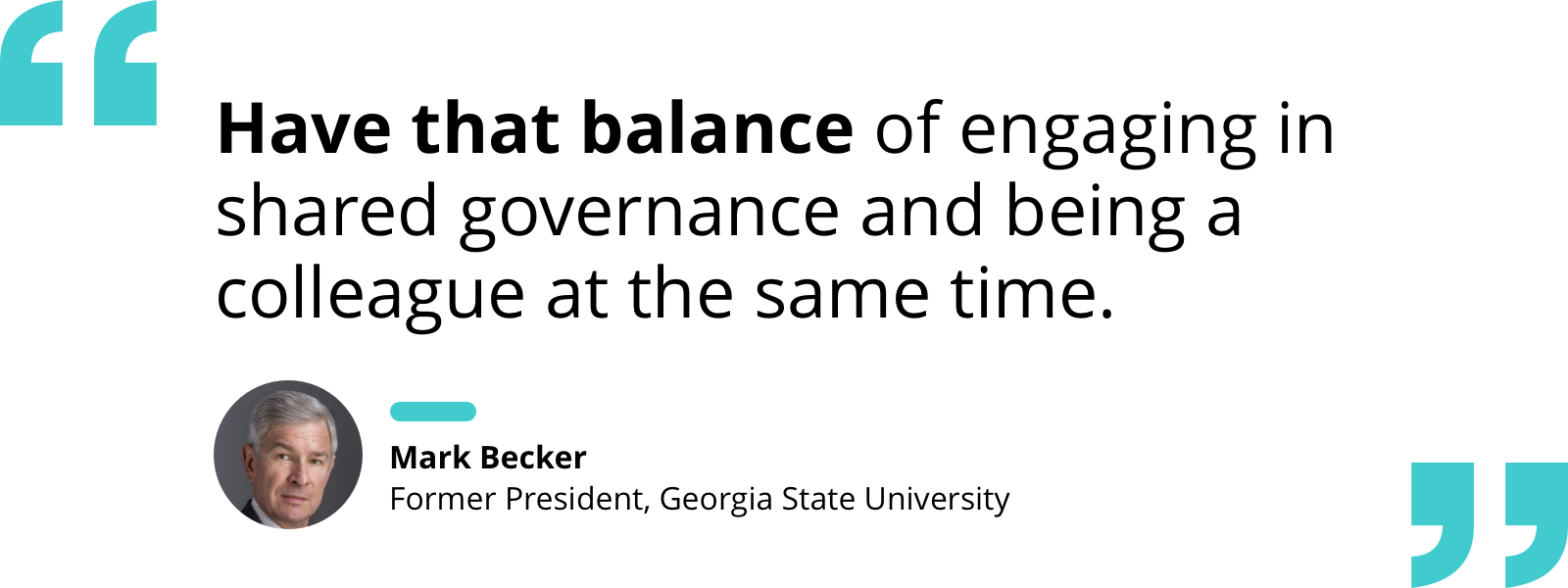
• "You’ve got faculty members, a department chair, a dean, all of those perspectives are valid." (Gabrielle Starr, Pomona College)
Be a Servant Leader
• "Just remember that everything addressed to you really should be read as dear occupant. Don't take things personally. Realize that you are the institution in so many people’s minds, and your responsibility is to keep that institutional perspective." (Gabrielle Starr, Pomona College)
• "The job is not about you; the job is about the institution, and you’re the president there to facilitate the institution." (Samuel Stanley, Michigan State)
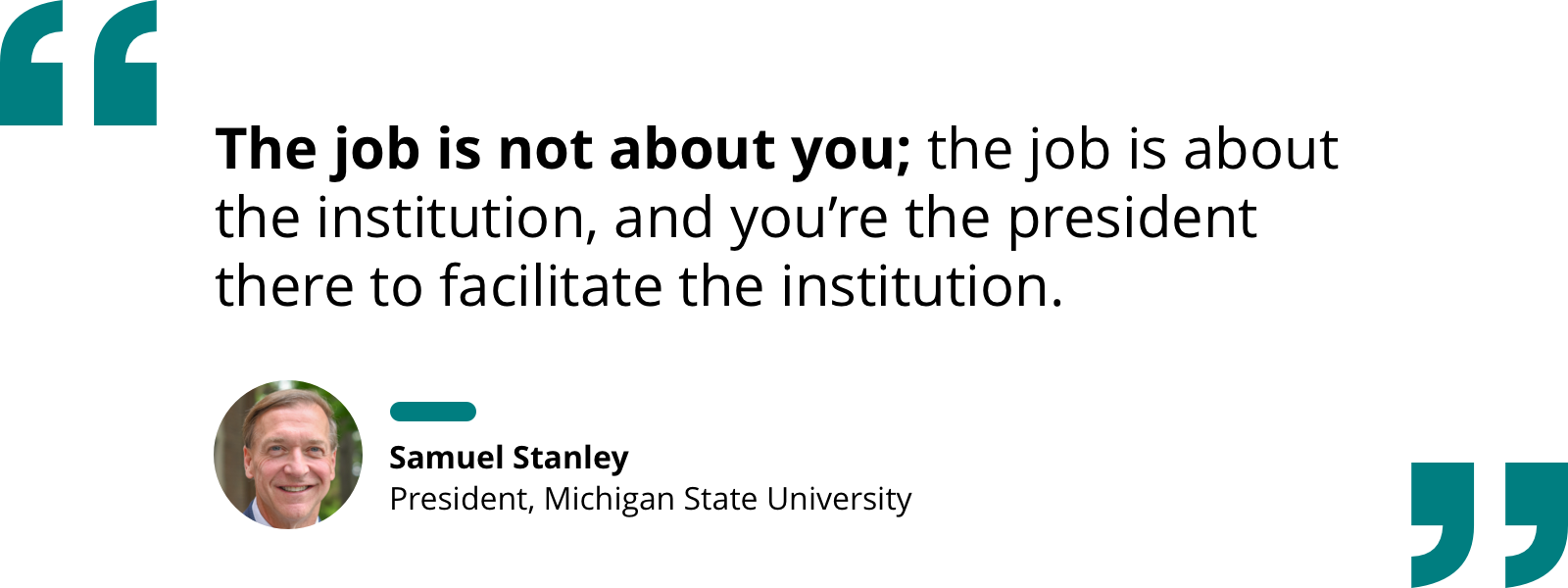
Note: The interviews cited in this blog were drawn from the Weekly Wisdom Series and originally aired between March 29 and May 24, 2021 as part of the University Innovation Alliance’s Innovating Together Podcast, created in partnership with Inside Higher Ed. We launched the UIA in 2014 with the goal of increasing graduation rates for first-generation students, students of color, and students from low-income backgrounds. The podcast is our platform for inspiring conversations with higher ed leaders.

